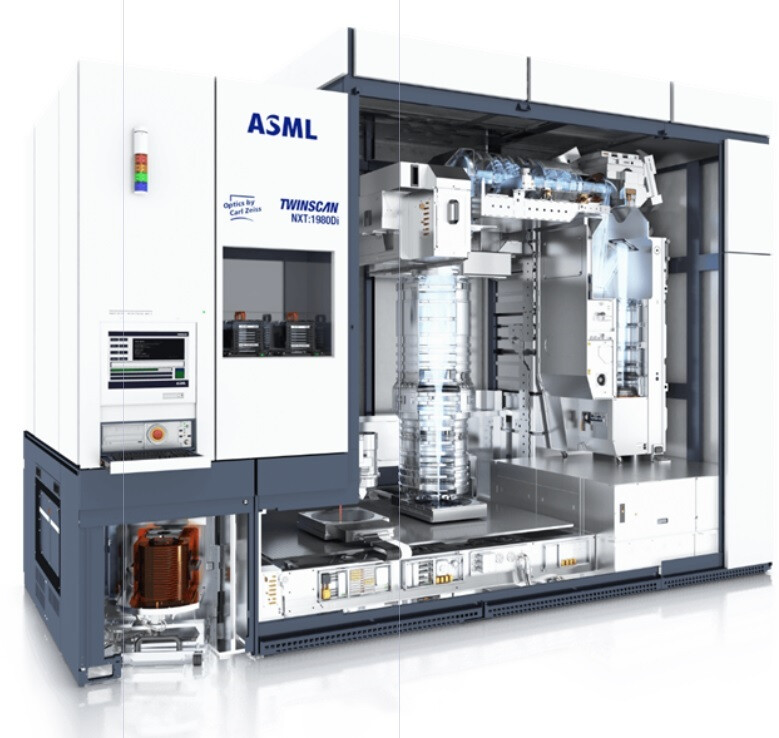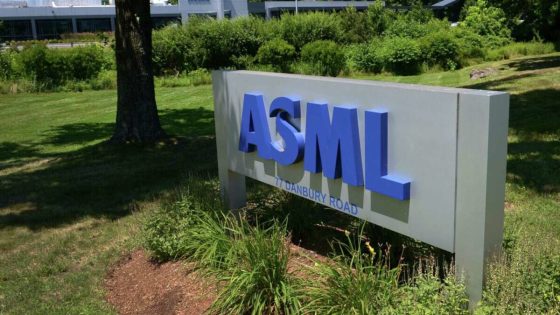U.S. bans exports of certain ASML lithography machines to China for advanced chips،
Fearing that China’s largest foundry, SMIC, is capable of producing the 7nm Kirin 9000s 5G chipsets used to power the controversial Mate 60
series of smartphones, the United States is seeking to strengthen the sanctions it imposed on Huawei in in particular, and to China in general. By
ReutersThe United States is banning Dutch technology company ASML from shipping certain Deep Ultraviolet (DUV) lithography machines to Chinese buyers who plan to use them to produce high-end semiconductors rather than mid-range silicon.
Lithography machines are important in the chip manufacturing process because they etch circuit patterns onto silicon wafers that help determine the location of billions of transistors in a chip. As the number of transistors on chips continues to increase, finer and finer patterns, a fraction of the width of a human hair, are created by lithography machines. Consider that the 3nm A17 Pro chip built by TSMC for the
iPhone 15 Pro and iPhone 15 Pro Max each contains 19 billion transistors.
To enable the chip industry to continue to reduce the size of transistors, allowing it to produce more powerful and smaller chips, ASML developed extreme ultraviolet (EUV) lithography used to produce chips of 7 nm and less. The lower the process node, the smaller the sizes of the transistors used, leading to a higher transistor count. A higher number of transistors generally results in more powerful and/or more power-efficient chips.
NXT 1980 Di DUV machine no longer allowed to ship to China to produce advanced chips
For now, only
ASML manufactures EUV machines and their shipment to China is prohibited. Recently, Japanese company Canon has improved nanoimprint lithography (NIL) technology and claims that NIL can now compete with EUV in marking wafers with circuit designs for 5nm chips. Along with other improvements, Canon says the technology can also be used on 2nm chips.
Yesterday, ASML chief executive Peter Wennick said ASML’s NXT:1980Di tool, not covered by Dutch export rules, would be restricted by new US export rules. The executive said: “In principle, the 1980s would fall under export control restrictions, but only when…(they) are used for advanced semiconductor manufacturing.” He said demand from Chinese chipmakers for the DUV machine would remain strong despite the restrictions. Chinese sales accounted for 46% of ASML’s third-quarter revenue.
With the restriction placed on the use of NXT:1980Di to produce advanced chips in China, ASML estimates that only a small number of factories in China will be affected. Winnick, CEO of ASML, says only 15% of his company’s sales in China will be affected by the new sanction. Despite the new export rule change, Winnick expects ASML to continue receiving business from China. “I don’t think we will see a peak this year, I think there will be significant demand from China for mature technologies,” the executive said.

















